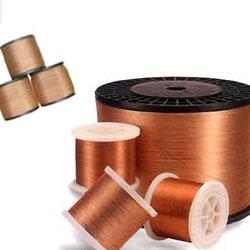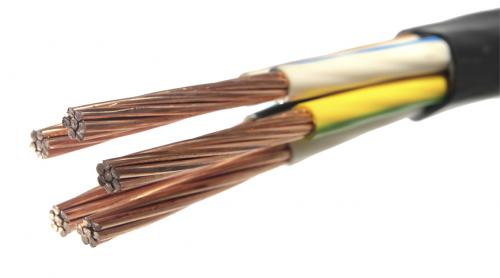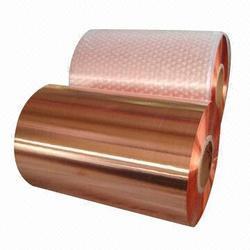Why Should You Buy The Tin Coated Copper Wire?
Copper
wires are always popular among manufacturers of electrical products because of
their high electrical conductivity. While metals like gold, steel or aluminum
may also be great electricity conductors, copper usage is extensive because it
is both effective and cost-friendly. But, the bare copper wire can be prone to
oxidation which leads to rusting. So, when copper wires get corroded after some
years, they may not be found useful for marine applications or overhead wires.
This is where the tin coated copper wire
comes in; having a thin layer of tin ensures that these wires do not get
corroded. Enamelled
copper wire or magnet wire is a copper wire which has been coated with
an insulation layer. This is primarily used for building electromagnets,
transformers, motors and speakers, inductors etc.
Copper
wires can be tinned by two main processes. The wire is first drawn to a certain
size; it is then annealed through application of heat where a specific metal gets
heated up to a temperature and then it is left to cool down slowly. The metal
thus gets softened so that it can be easily bent into shape and cut. The
operator will then either dip this wire into molten tin or it gets
electroplated.
What are the key benefits of
choosing tin coated copper wire?
Ø When you choose tin coated copper wiring you must
remember that these will not rust because the element tin can resist both
oxygen and water. While the tin coated copper wire has all the positive
benefits of copper, it also has the added protection of the tin layer against
harsh weather conditions. This layer of tin also gives the wire more strength
and longevity. This is why this variety of copper wires is seen to last at
least ten times more than the regular copper wire.
Ø Tin coated
copper wire finds a lot of use in
places where electrical appliances are left exposed to high humidity. This
explains why such wires are mainly used for mine trains or buses, industrial
cranes, marine projects etc. Since soldering the wires is easy, it is preferred
for stronger connections.
Ø Tin copper wires have been known to last for many
years because of their anti-corrosive properties. They guarantee excellent
performance even after many years of being in use. In comparison the non-tinned
variety needs to be repaired and replaced from time to time.
Ø The tinned variety is found to have more electrical
conductivity compared to the non-tinned variety. These are most extensively
used in the electrical goods industries and for powering electrical
locomotives, trams and trolleys. They are also used in making automobiles and
industrial cranes.
Ø The tin coated
copper wire is also widely used for soldering purposes. The properties
of tin boost those of copper and help to make the copper underneath even
stronger. This ensures that such tinned copper wires do not break even after
regular wear and tear. Since tin plating improves copper wire longevity, they
are cost-effective in the long run. They guarantee superior performance for low
maintenance.







Comments